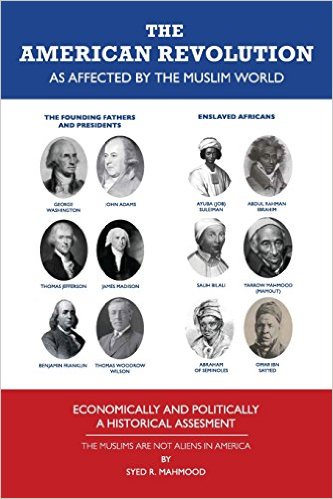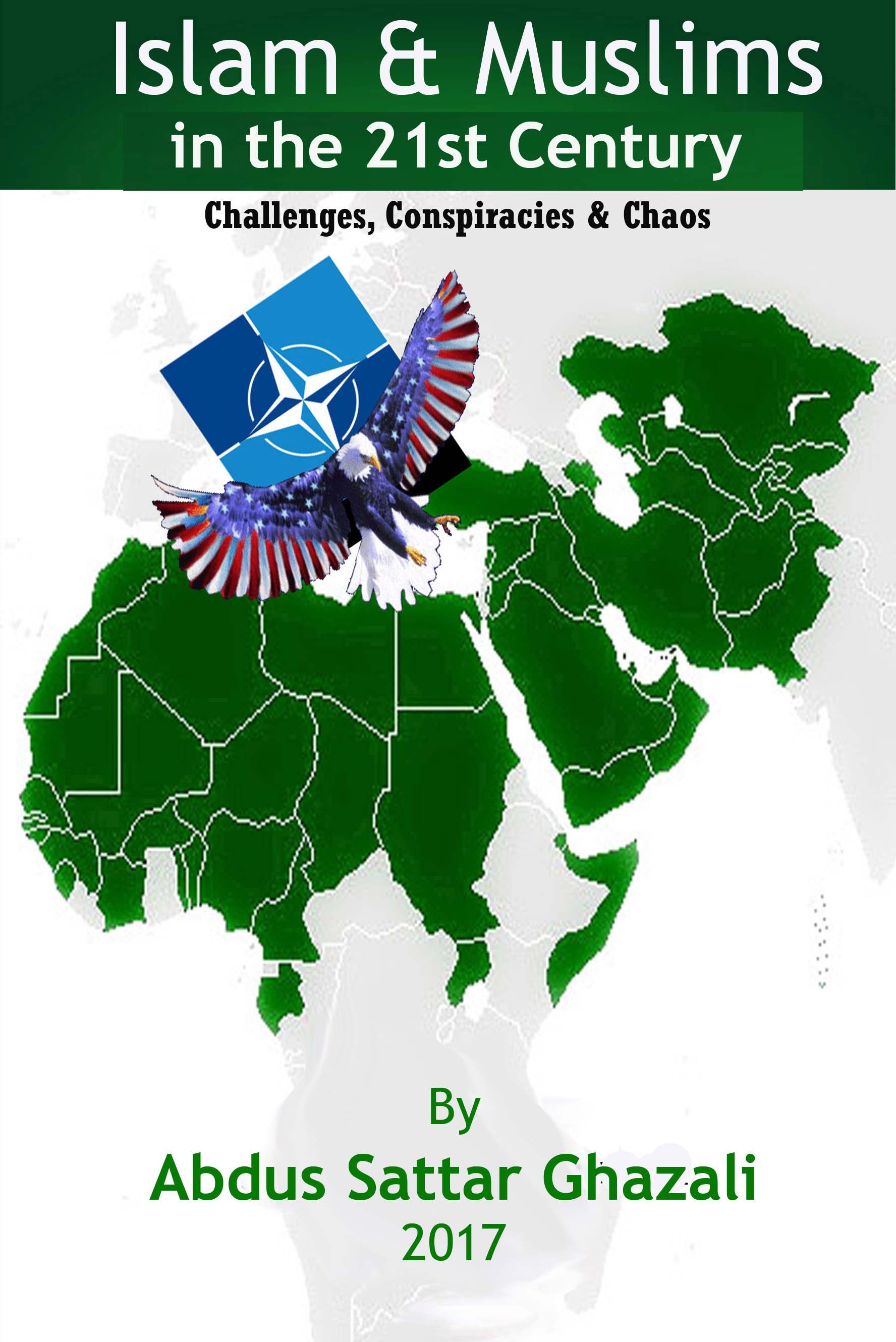November 11, 2020
Why Putin virtually forced Armenia to surrender to Azerbaijan?
By Abdus Sattar Ghazali
Armenian Prime Minister Nikol Pashinian announced on Monday night that he has "painfully" signed an agreement with the leaders of Azerbaijan and Russia to end the war with Azerbaijan. "I have signed a statement with the presidents of Russia and Azerbaijan on the termination of the Karabakh war," Pashinyan said in a statement.
Pashinian’s virtual surrender to Azerbaijan sparked violent demonstrations in Armenia Tuesday. Chaotic scenes erupted inside Armenia's parliament as protesters angry at the Nagorno-Karabakh peace deal with Azerbaijan seized control of its chamber to denounce the country's leadership as they lynched the parliament speaker.
Prime Minister Nikol Pashinian singed virtual surrender agreement with Azerbaijan following repeated calls on Russia to help Armenia in its fighting with Azerbaijan over Nagorno-Karabakh.
On October 31, Pashinyan formally asked Russian President Vladimir Putin to begin "urgent" consultations on security assistance as Azerbaijani forces made gains.
In his letter to Putin, Pashinyan said hostilities were approaching Armenia's borders, reiterated that Turkey was backing Baku and invoked a 1997 treaty on friendship, cooperation and mutual assistance between Moscow and Yerevan. "The prime minister of Armenia has asked the Russian president to begin urgent consultations with the aim of determining the kind and amount of aid which the Russian Federation can provide Armenia to ensure its security," the foreign ministry said.
Armenia hosts a Russian military base under a 25 year agreement.
Russian response was that it would provide “necessary assistance” to Yerevan in case the fighting reaches the Armenian territory. "Russia will render Yerevan all necessary assistance if clashes take place directly on the territory of Armenia," the foreign ministry said in a statement.
Tellingly, on October 7, in an interview with the Russian public broadcaster Russia 24, President Putin reaffirmed Russia's commitment within the Collective Security Treaty Organization, or CSTO, which envisages that an attack on one member state is considered an attack on all others, and each is obliged to support their fellow members.
However, President Putin said that the military conflict was not taking place in Armenian territory. "The fighting, which to our great regret, continues to this day. It is not taking place in the territory of Armenia."
Around 20 percent territory of Azerbaijan is under Armenian occupation since 1994 when the first Nagorno-Karabakh fighting ended with devastating defeat for Azerbaijan.
Now the question is why the Russian President allowed the fighting to continue as Armenia suffered heavy losses? Why he did not invoke CSTO to help Armenia?
Interestingly, in the past Armenia had repeatedly stated that it would expect direct military assistance from the CSTO in case war with Azerbaijan resumes. In August 2009, Nikolay Bordyuzha, the CSTO's secretary-general, confirmed that official Yeveran can count on such support.
However, many analysts believe, Putin perhaps wanted to punish Armenia for its pro-US and pro-NATO policies.
Armenia contributes to NATO-led operations and cooperates with Allies and other partner countries in many other areas. A key priority for NATO is to strengthen political dialogue and to provide focused advice and assistance in support of democratic, institutional and defense reform efforts in Armenia.
According to NATO website:
- Relations with NATO started in 1992, when Armenia joined the North Atlantic Cooperation Council.
- Bilateral cooperation began when Armenia joined the Partnership for Peace (PfP) program in 1994.
- Armenia is an active contributor to NATO-led operations in Afghanistan and Kosovo.
- Armenia’s program of cooperation with NATO is set out in an Individual Partnership Action Plan (IPAP) which means that Armenia cooperates with NATO not only in the defense sphere, but also on political and security issues, democratic standards, rule of law, and the fight against corruption.
- Since 2002, Armenia has participated in the PfP Planning and Review Process (PARP), which helps develop the ability of Armenia’s forces to work with NATO forces on operations.
- NATO and individual Allies have supported Armenia’s efforts to develop interoperability with NATO forces of the Armenian Peacekeeping Battalion and enable it to become a brigade with associated combat support and combat service support units.
- Armenia organizes an annual NATO Week to raise public awareness of NATO and Armenia’s cooperation with the Alliance.
- The United States
The United States has been steadily upping its military clout in the region. In early 2003, United States Department of Defense announced several major military programs in the Caucasus. Washington's military aid to Armenia in 2005 amounted to $5 million, and in April 2004, the two sides signed a military-technical cooperation accord.
In late 2004, Armenia deployed a unit of 46 soldiers, which included bomb-disposal experts, doctors, and transport specialists, to Iraq as part of the American-led Multi-National Force Iraq. In 2005, the United States allocated $7 million to modernize the military communications of the Armenian Armed Forces.
Since 2003, Armenia and the Kansas National Guard have exchanged military delegations as part of a National Guard Bureau program to promote better relations between the United States and developing nations. [Wikipedia]
Humiliating ‘peace agreement’
Hence this argument is perhaps plausible that Russia allowed the fighting continued till Armenia was unable to sustain it and accepted the ceasefire terms that are favorable to Azerbaijan.
The agreement allows Azerbaijan to keep areas of Nagorno-Karabakh it seized during the war and Armenia agreed to leave several other areas in the next few weeks.
Armenia must return several territories under its control, including parts of the Gazakh region by Agdam and Gazakh regions by November 20, Kelbajar region by November 15 and the Lachin region by December 1. Both sides must also guarantee the unimpeded, safe flow of traffic through established corridors through Azerbaijan to Lachin and through Armenia to the Nakhchivan exclave bordering Turkey and Iran.
According to the agreement some 1,960 Russian personnel equipped with small arms, 90 armored personnel carriers, 380 units of vehicles and special equipment would be deployed along the Nagorno-Karabakh frontlines and the Lachin corridor for a mandate of five years, with an automatic five-year extension if neither party decided otherwise six months before the expiration date.
Violent protests erupt in Armenia rejecting the Nagorno-Karabakh peace deal
By Abdus Sattar Ghazali
Chaotic scenes erupted inside Armenia's parliament in the early hours of Tuesday as protesters angry at the Nagorno-Karabakh peace deal with Azerbaijan seized control of its chamber to denounce the country's leadership as they lynched the parliament speaker, Daily Sabah reported.
Hundreds of people stormed into the building after Prime Minister Nikol Pashinian announced the agreement to end six weeks of fighting over the Nagorno-Karabakh region.
Many gathered inside its inner chamber, taking the seats of parliamentarians and shouting "resign!" or "out!"
Arguments and scuffles broke out as protesters tried to take to the podium to speak and were shouted down, with some throwing bottles.
Thousands of protesters had earlier gathered outside the government headquarters in Yerevan and stormed the building, ransacking offices and breaking windows.
Local media reports said parliament speaker Ararat Mirzoyan had been attacked and beaten.
Pashinyan’s official residence was attacked and protesters ripped his nameplate off his office door as others chanted: “Nikol has betrayed us.”
Police officers looked on as demonstrators – including some army veterans wearing military fatigues – filled the ornate, wood-panelled offices, shouting and delivering furious speeches, according to the Guardian.
Pashinian called on protesters to go home, writing on Facebook: "At this difficult time we must stand shoulder to shoulder."
Armenian opposition parties have called for the government to revoke the agreement. And the country’s president, Armen Sarkissian, distanced himself from the deal, saying he had learned about the negotiations from the media and calling for “political consultations” to find a path out of the crisis, according to the Guardian.
Putin hopes lasting peace between Azerbaijan, Armenia
Russian President Vladimir Putin said on Tuesday that he hopes for a lasting peace for both Azerbaijani and Armenian people.
“I hope these last steps we have taken will ensure long-term peace for the peoples of Azerbaijan and Armenia,” Putin said, speaking at a virtual summit of the Shanghai Cooperation Organization.
Describing the events in Nagorno-Karabakh as "tragedy", Putin said: "I would like to express with great pleasure that we have reached agreements to stop the bloodshed.”
The peace agreement confirmed the influence of Russia and Turkey in the region, while sidelining western powers, the Guardian said.
Erdogan, Putin discuss Nagorno-Karabakh
Turkish President Recep Tayyip Erdogan on Tuesday spoke over the phone with his Russian counterpart Vladimir Putin to discuss bilateral relations and regional developments, including in Upper Karabakh and Syria, Anadolu News Agency reported.
Erdogan said an appropriate step was taken last night on the path to a lasting solution in Nagorno-Karabakh, the agency quoted a statement by the Turkish Presidency as saying.
He said this “significant opportunity”, to which Turkey and Russia contributed profoundly, should not be wasted, and it should be used to ensure lasting peace and stability in the region.
Erdogan underlined that "the most important issue at this point is that Armenia should abide by the cease-fire and commitments stipulated in the joint statement" signed by both Azerbaijan and Armenia.
He said that Turkey together with Russia "will carry out monitoring and overseeing activities" for the cease-fire through a Joint Center to be set up on a territory liberated from the occupation of Armenia. He added that the center's location will be determined by Azerbaijan.
“A great responsibility falls to the Russian side, too, at this stage,” the statement said.
The Turkish president also stressed the importance of the return of displaced Azerbaijanis to their homes in Upper Karabakh and a corridor be opened between Azerbaijan and Nakhchivan.
Stressing that Upper Karabakh showed significance of Turkish-Russian cooperation for resolution of regional conflicts and crises, Erdogan said "similar spirit of cooperation should be displayed" in Syria, where they can establish a similar mechanism.
The deal announced overnight on Tuesday was “absolutely momentous” in the more than a century-long modern history of the dispute, the Guardian quoted Laurence Broers, the Caucasus program director at Conciliation Resources, a peace-building group as saying.
“It could end up being a strange, highly securitized area,” said Broers. “Maybe the calculation is that it’s going to be such an awful place to live that most of the Armenian population – most of whom have already left – won’t come back.”
Many predicted the eventual surrender of Armenia to Azerbaijan or the signing of a ceasefire deal, as Armenian forces lost dozens of military vehicles and equipment on a daily basis after Azeri forces devastated them, especially with the use Turkish drones.
The Moscow-mediated ceasefire is likely to end a six-week war in which Azerbaijan launched its largest offensive since 1994 to retake Nagorno-Karabakh and surrounding regions under Armenian control. Since fighting began on September 27, thousands have been killed and more than 100,000 displaced in the worst fighting since the early 1990s.
The truce, announced late on Monday night, calls for the deployment of nearly 2,000 Russian peacekeepers to the disputed enclave, where Azerbaijan will receive significant territorial concessions from Armenia.
The Russian defense ministry said it had started deploying 1,960 servicemen, who were en route to an unnamed airbase to be airlifted along with their equipment and vehicles.
News footage on Tuesday showed peacekeepers from Russia’s 15th Motorised Rifle Brigade boarding military planes from Russia and later departing the Armenian city of Goris in military transports headed toward Nagorno-Karabakh, the Guardian reported.
Armenia agrees to end war with Azerbaijan over Nagorno-Karabakh
By Abdus Sattar Ghazali
Armenian Prime Minister Nikol Pashinian said Monday night that he has "painfully" signed an agreement with the leaders of Azerbaijan and Russia to end the war with Azerbaijan on Tuesday, Daily Sabah reported.
"I have signed a statement with the presidents of Russia and Azerbaijan on the termination of the Karabakh war," Pashinyan said in a statement posted on his Facebook page, calling the move "unspeakably painful for me personally and for our people."
Kremlin released a statement later, saying that parties have signed a deal on "complete stoppage" of combat actions in Nagorno-Karabakh.
"I made that decision as a result of a deep analysis of the military situation," Pashinian said adding, "We need to analyze our years of independence to plan our future and not repeat the mistakes of the past."
Russian President Vladimir Putin announced later that the cease-fire has started, and that Azerbaijani and Armenian militaries will remain in positions they control.
According to a piece published on the Middle East Eye news website, the deal will mandate Armenia to "cede a large chunk of territory."
Turkish and Russian peacekeeping forces will be stationed in Nagorno-Karabakh after the deal, Haber Global television reported later in the day.
The agreement calls for Armenian forces to turn over control of some areas it held outside the borders of Nagorno-Karabakh, including the eastern district of Agdam, according to the Associated Press. That area carries strong symbolic weight for Azerbaijan because its main city, also called Agdam, was thoroughly pillaged, and the only building remaining intact is the city's mosque.
Armenians will also turn over the Lachin region, which holds the main road leading from Nagorno-Karabakh to Armenia. The agreement calls for the road, the so-called Lachin Corridor, to remain open and be protected by Russian peacekeepers.
In all, 1,960 Russian peacekeepers are to be deployed in the region under a five-year mandate, the AP said.
The agreement also calls for transport links to be established through Armenia linking Azerbaijan and its western exclave of Nakhcivan, which is surrounded by Armenia, Iran and Turkey.
The capture of Shusha
Azerbaijani President Ilham Aliyev also addressed nation later in the day. Hailing the deal as victory, Aliyev added Pashinian was obliged to sign it after Azerbaijan liberated its occupied territories, especially the key town of Shusha.
The capture of Shusha has also been a major victory for Azerbaijani forces, who have been making gains against Armenian separatist fighters since new fighting erupted over Nagorno-Karabakh a month ago.
The town has a significant military value since it is located on strategic heights about 10 kilometers (6 miles) south of the region’s capital over Khankendi (Stepanakert) and on the road linking the city with Armenian territory.
The Azerbaijani army inflicted "heavy blows" on Armenian military positions in the Khojavend region, Azerbaijan's Defense Ministry also said on Monday. A ministry statement late Sunday said the Armenian army suffered "heavy losses" and fled their position on the front line.
Over the past six weeks, the Azerbaijani army has liberated five cities, three towns, nearly 240 villages and some strategic heights from Armenian occupation.
About 20% of Azerbaijan's territory, including Nagorno-Karabakh and seven adjacent regions, has been under Armenian control for nearly three decades.
Armenian opposition wants PM to quit
Tellingly, Armenia's opposition on Monday called for the prime minister's resignation as Azerbaijan continues its military successes in Upper Karabakh region. A total of 17 opposition parties called on Nikol Pashinyan to step down in order to prevent "unrecoverable losses."
"The political forces demand that Pashinyan and his government, who are responsible for the current disastrous situation, leave office," the joint statement said.
They also pushed for the establishment of an emergency executive body to resolve military and political issues. "Losses of lives and land, and deteriorating relations with allies, especially with Russia, clearly show that the current government is incapable," the parties said.
Abdus Sattar Ghazali is the Chief Editor of the Journal of America (www.journalofamerica.net) email: asghazali2011 (@) gmail.com
Putin, Macron express concern on Nagorno-Karabakh fighting as Armenia suffers loses
By Abdus Sattar Ghazali
Russian President Vladimir Putin and French President Emmanuel Macron discussed in a phone call the ongoing fighting in Nagorno-Karabakh and expressed their concern about the involvement of extremists from Syria and Libya in the conflict, Tass quoted the Kremlin press office as saying Saturday.
"While discussing Nagorno-Karabakh, they expressed deep concern about the ongoing large-scale hostilities in the conflict zone and increasing involvement of extremists arriving from Syria and Libya into it," the statement says.
"The presidents exchanged in-depth views concerning the Nagorno-Karabakh crisis and reached an agreement that the hostilities need to be brought to an end so as to ensure return to negotiations on a realistic basis," a statement from the Elysee Palace in Paris said.
Paris pointed out that the main goal was "to ensure the further stay of the Armenian population in that region and also to put an end to sufferings of the civilian population."
According to the Kremlin, Putin informed Macron in detail about steps taken by Russia to achieve a ceasefire at the soonest possible time and to resume talks.
"They confirmed mutual determination to continue the coordinated mediation efforts of Russia and France, including within the framework of the OSCE Minsk Group," Kremlin said.
Turkish, Russian presidents discuss Nagorno-Karabakh
In a telephone call, Turkish president late Saturday spoke to his Russian counterpart, addressing regional matters with special emphasis on ongoing clashes in Upper Karabakh, Anadolu News Agency reported.
Presidents Recep Tayyip Erdogan and Vladimir Putin discussed Turkish-Russian relations and regional developments, including Azerbaijan's Upper Karabakh (Nagorno-Karabakh) region, Turkey’s Communications Directorate said in a statement.
Erdogan told Putin that Armenia must withdraw from the Azerbaijani lands that it has been occupying, noting that Azerbaijan's ongoing counter-operations in the face of Armenian attacks are being conducted within its own lands.
During the phone call, the Turkish president further stressed that Armenia must be convinced to have the common sense to go the negotiating table. Ending the ongoing conflict with a permanent solution and stabilizing the region is of key importance, he added.
Armenia asks Moscow for help
Putin and Macron telephonic talks on Armenia-Azerbaijan fighting came a week after Armenia’s Prime Minister Nikol Pashinian urged Russia to consider providing security assistance to end more than a month of fighting over Nagorno-Karabakh.
With Azerbaijani troops moving deeper into Nagorno-Karabakh, Armenia’s prime minister made his first public plea for Russia’s assistance since the latest fighting started.
President Recep Tayyip Erdoğan said Saturday that Azerbaijan is getting closer to victory against Armenia in its efforts to end the 30-yearslong occupation in Nagorno-Karabakh. The Azerbaijani military has liberated 208 villages from Armenian occupation in Nagorno-Karabakh, according to the Turkish Defense Ministry.
Pashinian’s request puts Russia in a precarious position: joining the fighting would be fraught with unpredictable consequences and risk an open conflict with Turkey, while refusing to offer protection to its ally Armenia would dent Moscow’s prestige, the Associated Press said.
Nagorno-Karabakh lies within Azerbaijan but has been under the occupation of ethnic Armenian forces backed by Armenia since a war there ended in 1994. The latest outburst of hostilities began Sept. 27 and left hundreds — perhaps thousands — dead, marking the worst escalation of fighting since the war’s end.
Azerbaijani President Ilham Aliyev has insisted that Azerbaijan has the right to reclaim its territory by force after three decades of fruitless international mediation. He said that Armenia must pledge to withdraw from Nagorno-Karabakh as a condition for a lasting truce.
Azerbaijan says its 20% territory has been occupied since 1994.
Azerbaijani troops, which have relied on strike drones and long-range rocket systems supplied by Turkey, have reclaimed control of several regions on the fringes of Nagorno-Karabakh and pressed their offensive into the separatist territory from the south, the Associated Press said.
Retired Lt. Gen. Yevgeny Buzhisnky, the former chief of the Russian Defense Ministry’s international cooperation department, said Moscow would stay away from the conflict. “I exclude the Russian military’s involvement,” Buzhinsky was quoted as saying by the Interfax news agency. “Azerbaijan is far too important for Russia to wage a war against it and Turkey.” He noted that Azerbaijan has tried to avoid hitting Armenian territory, so “there is no reason for the Russian military intervention.”
Azerbaijan, Turkey deny reports of Syrian militants fighting in Karabakh
Azerbaijan’s ambassador in Washington has denied reports saying Turkey has sent Syrian militants to aid his country’s fight against Armenia, calling them Russian propaganda meant to dupe Western news outlets.
“I went to school in Moscow. I know propaganda very well, and this is basic Soviet propaganda,” Elin Suleymanov, Azerbaijan’s ambassador to the U.S., told The Washington Times in an interview last week.
“What you have here is a very strong virtual effort to produce a narrative designed to provide Armenia with an excuse to invite Russian forces into the conflict to carry out an anti-terrorism operation against Azerbaijan,” Suleymanov said.
Armenia’s ambassador to Russia said a month ago that Turkey had sent some 4,000 fighters from Turkish-controlled northern Syria to Azerbaijan. Western press reports have since said Syrian mercenaries are aiding Azerbaijan, a Muslim majority nation, against largely Christian Armenia, according to Washington Times.
Britain’s Guardian newspaper reported in late September that Syrian rebel fighters had signed up to work for a “private Turkish security company” as border guards in Azerbaijan. The report, which cited interviews with volunteers in Syria’s last rebel-held stronghold, did not identify the security company.
Turkish President Recep Tayyip Erdogan on October 14 denied accusations that Ankara has sent militants from Syria to Azerbaijan.
In a speech at the meeting of the Justice and Development Party (AKP) parliamentary bloc, Erdogan stressed that Turkey does not need to send Syrian militants to Karabakh, explaining that Turkey is capable of providing all kinds of support to Azerbaijan on its own.
The Turkish president accused Russia and France of supplying the Armenian side of the Karabakh conflict with large quantities of weapons.
On his part, Azerbaijani President Ilham Aliyev has also denied these claims; instead, he has accused Armenia of recruiting fighters from Syria and Lebanon to fight in Karabakh.
Abdus Sattar Ghazali is the Chief Editor of the Journal of America (www.journalofamerica.net) email: asghazali2011 (@) gmail.com

The Journal of America Team:
Editor in chief:
Abdus Sattar Ghazali
Senior Editor:
Prof. Arthur Scott
Special Correspondent
Maryam Turab
Your donation
is tax deductable.



